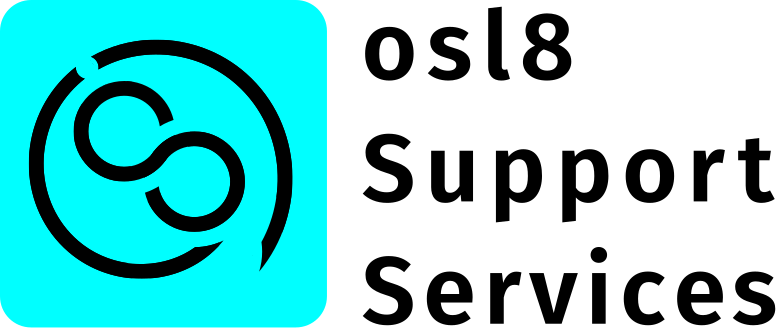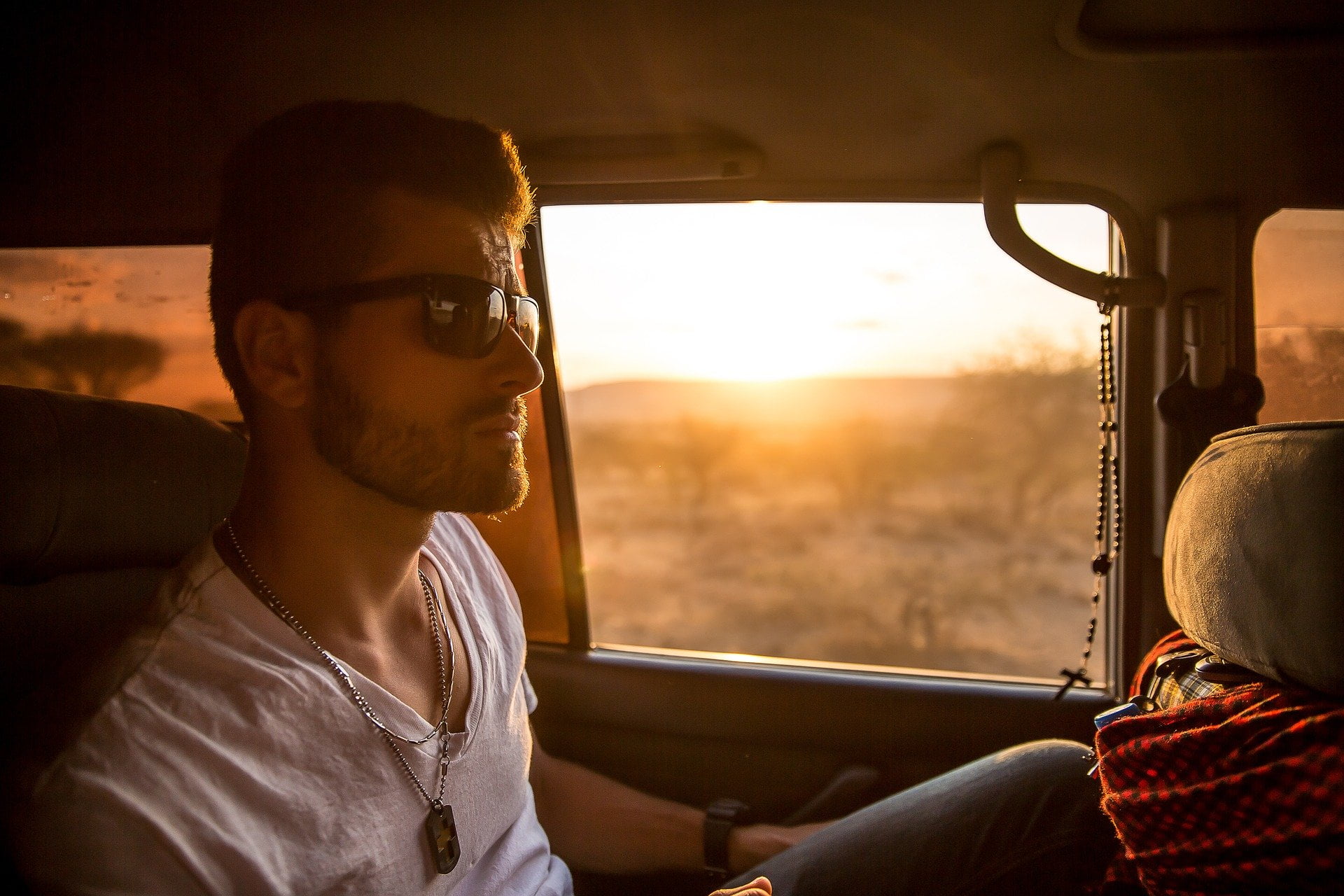I cannot say that anyone has ever called me naive to my face. Maybe they have. If so I put it out of my mind. However, I am sure some people have thought of me as naive—including some very close relatives. What does naive even mean? The top two dictionary definitions according to the online Merriam-Webster dictionary are (as of this writing at least):
marked by unaffected simplicity
or
deficient in worldly wisdom or informed judgment
To the uninitiated my actions might appear simplistic, but they are more complex than might first meet the eye. You might know that especially if you know me very well or read many of the other blog posts I have written. As to worldly wisdom and informed judgement, admittedly I do not know a lot of things and I readily admit when I know I do not know something. As I see it that is in itself a type of wisdom: Admitting when oneself does not know something. On the contrary, my understanding of naivete (“the quality or state of being naive”) is not knowing what oneself doesn’t know. It is possible that at times I can be naive, but I strive to move from total ignorance to at least a basic awareness of not knowing.
With that seemingly odd yet relevant introductory side-note out of the way, I’ll begin the main discussion of this post as described by its title: Giving Rides to Strangers. I am not now nor have I ever been a taxi driver or a driver for Uber, Lyft, or any paid transportation service. I also never have been a school or public transportation bus driver, nor have I been the operator of a light rail, subway or other train, ferry, cruise ship, or aircraft. My job has never been to transport people I don’t know or barely know from place to place. I have willingly and lovingly transported family and friends many times before, but never has there been a socioeconomic expectation and agreement that I transport people I do not know.
I don’t make it a habit to give random people rides, and as “random” as it might seem I feel that there is a greater order to things that cannot be simply explained. I do not offer everybody I meet while I am out and about in my daily life a ride somewhere. As inefficient as I can be sometimes with my time (I probably could write a whole book on that subject…), it does not make practical sense for me to offer people rides. I have had a dream of a future with a “networked smart transportation grid” system of vehicles (land, water, and air) and operators that would enable people to get from place to place very efficiently, but it seems like we are both technically and socially very far from realizing that dream. For now I am grateful for the good fortune of having a car that I can use to transport myself, a bit of cargo, and other people.
On a few occasions in my life I have given people I do not know rides in my own vehicle from one area of town to another. Most of the time it was not very far out of my way. Thus far I haven’t picked up hitchhikers on the highway, but I have considered it. Maybe some day I will feel called to do so. In any case, I have at about half dozen times in my life given a ride to people who have asked for one. I won’t discuss every instance in detail both for brevity and because I don’t remember all of the details. It isn’t that I have forgotten all the details because I was traumatized in some way by or during the experience of giving them rides. Rather, each of the events were fairly unremarkable to me except for the fact that I do not often have people I haven’t met before in my car.
Before I continue and eventually conclude this story, I feel inclined to state a disclaimer. I cannot and do not recommend that anyone give people they do not know rides around town, especially on a volunteer basis rather than as a paid service with special insurance considerations and such. In the world we live in today, it can be risky to give unknown people rides. I am not so well practiced at giving people I don’t know and who are not paying for a ride that I can give a reliable list of tips for doing so safely. I have knowingly taken a risk every time I have agreed to give “strangers”—people I just met and barely know—rides. Each person that might have an opportunity to help out a fellow human being in this way must weigh the risks for themselves and make their own decision whether to do it or not.
With all of that background information out of the way, I’d like to share my most recent experience giving a stranger a ride. I don’t really like that word “stranger”. It’s a fairly common English word and most people know what it means—in the USA at least. It has a certain tone of danger about it. The phrase “stranger danger” comes to mind. I might examine that word further in a future writing, but for consistency I will continue using that word. The most recent time I gave a stranger a ride was post-COVID-19, as much of the year 2020 so far seems to be called by many. I won’t go into specific details of the interaction as it relates to COVID-19, specifically whether we wore masks or any of that kind of thing. For the purposes of this story, that information is irrelevant. So, as it turns out I had two more brief asides. Thank you for your patience. Now for the story.
I do a considerable amount of volunteer gardening at community gardens and public spaces. One day at the end of June several days prior to writing this I was gardening at one of the gardens I have spent quite a bit of time at on Pueblo’s East Side. This garden is part of the Pueblo House, specifically located at the Music House at the corner of 5th Street and Hudson Avenue. A couple of friends were there with me helping plant some flowers. This part of town, especially this intersection, is a very interesting part of town. It is near a major intersection—4th Street and Hudson Avenue—in a lower income and generally neglected part of town. I have witnessed arguments, prostitution, drug deals, and all sorts of other things near this location. Not everything is “bad”, though. Some people have stopped to admire the garden and compliment me about it or talk a little about their lives. I have never felt completely fearful while I was there.
As we were working in the garden that day, a young man walked up to the fence and talked to my two gardening companions. At first glance he looked to my conditioned judgmental mind like he could be a gang member or some kind of “trouble maker.” His first request was to borrow someone’s phone. I offered the use of mine, but I invited him into the yard to use my phone under the shade of the tree. I was somewhat suspicious of and cautious about this young man because I knew almost nothing about him (at this point not even his name), and after all it is a sometimes turbulent part of town. The area I invited him to was not only in the shade on a hot summer day, but it was in a more controlled location where I could stay close to him as he used my phone.
When he finished with my phone I calmly took it back from him. He seemed a bit nervous or restless and might need to use the restroom, but he didn’t ask. There are no public restrooms in this part of town. I know because I’ve checked before. I decided in that moment to ask him if he needed to use the restroom and I told him I’d let him into the house to use it. I let him into the house to use the restroom, but I stayed close to the restroom door as he used the facility. When I heard him washing up I slowly stepped further away from the door and a minute or two later he came out. When he exited the restroom he walked out of the front door of the house and through the front gate of the yard back to the sidewalk.
As a precaution and thanks to an instinctive feeling I had, I decided to go into the restroom and check it out. I did not do a thorough sweep of the restroom, but I quickly noticed that he left a pair of sunglasses, a ring, and a pocket knife sitting on a ledge above the sink. Without giving it a second thought I took the three items and went quickly outside to see if he was still nearby. He was still close so I called him over, told him he had left those items in the restroom, and I returned them to him. He thanked me and seemed embarrassed by forgetting them.
While all of this was taking place, my two female gardening companions were working in the garden without me. For some reason this young man was interested in talking with them (I can imagine a few possible reasons). As it turns out he had asked them for a ride to another part of the East Side several blocks away. One of my companions came over to me and told me about his request and asked if I would fulfill it. I was hesitant to do it, but I felt more comfortable taking a few minutes out of our gardening tasks that morning (or afternoon—I don’t remember what time of day it was) to give him a ride myself rather than having one of them do it. Maybe they would have been fine, but my protective instinct decided to do it myself.
At some point in all of the events that conspired as I described so far, I asked the young man his name. I will not name it here for two reasons: I don’t want to reveal his identity (even if only his first name) and quite honestly I do not remember his name. Let’s call him “Jacob.” I let Jacob into the yard again and had him walk with me to my old car (approximately 17 years old) parked near the alley behind the house. I opened up the back gate, started the car, drove the car just outside the gate, warily left the car running while I stepped out of it to close the gate behind us, and returned to the car to leave. As I was pulling the car out of the gate and stepping out of the car to close it, Jacob told me that he had a few dollars to give me for the ride. When I got back into the car, he gave me a five dollar bill.
I did not ask Jacob for any money, but I also did not refuse it. I suppose because of this I did not technically give him a ride. He paid me for it. Moreover, some people might consider him a “customer” even if I had no intention from the start in giving him or anyone else a ride. Also, by this time I did know his name, but since then I have forgotten it and to this day I know very little about him. So the suggestion that I “gave a stranger a ride” in this instance is not entirely accurate. Anyway…
Jacob and I talked a little bit on the short drive to his destination about a mile or so away. I don’t remember every word of the conversation, but two parts of it stood out to me. The first part was a little concerning. He said something about how people who do nice things can sometimes end up getting hurt. In that moment I thought maybe he was trying to warn me as if I had no idea what kind of danger I could be putting myself in by helping him or other people out. I was quite aware of the fact that I could have been putting myself (or others) in danger, but it seems I was successful in not letting him know about it. He did not seem like a major threat to me or my companions, but I definitely was concerned and careful about what I said and did. I have no control over nor do I have any desire to control anybody else, but I know I have the power to influence how people react based on my own words and actions. At the same time, I did not want to reject his statement altogether or suggest to him that I had blind trust in him. Therefore, I acknowledged his statement and I said that I always do my best to be kind to people no matter how they might treat me or what that might mean for my own safety. Those were not my exact words in that moment, but that was the basic idea.
The other notable part of our short discussion involved talk about gardening and caring for plants. That is was what my companions and I were doing when we met Jacob. He asked me if I grew marijuana. I don’t know if he used that word exactly, but I knew what he meant. I told him quite honestly that I have never grown it, but some of my friends have. Further along in the conversation he asked me if I wanted to join him to smoke later that day. Part of me was taken aback by the suggestion and another part of me was flattered. I politely declined his offer for many reasons, but the reason (a true one) I gave him was that I had far to much to do that day to smoke. A curious part of me wonders what it might have been like to accept his offer. Maybe it would have been fun, but I could have gotten into trouble. I am not a “pot head” (not to judge anyone who smokes cannabis regularly—medically or otherwise), so for that reason alone it definitely was a risky proposition for me!
That is the basic story of the last time I gave (again, not entirely accurate…) a stranger a ride. The story was not especially exciting and perhaps even anticlimactic, but there were moments when some fear crept up inside of me. However, I did not let the fear take hold. I did not want to panic, dehumanize or demonize the young man, and possibly influence an unfortunate ending to the events that transpired. I don’t know how old Jacob was, but he did not look much older than 25 (I’m approaching 40). It is possible that he was on drugs—marijuana or otherwise—or that for whatever reason some or most of what he told me was not true. Maybe he did have ill intentions, but apparently we thwarted them or he changed his mind based on how events unfolded. I can speculate about a lot of things. All I know is that he looked to me like a young person in need whom I was available and able to help in some small way.
So, what is the point in sharing this ultimately tame (and possibly lame) story? I do not tell the story to showcase how smart and kind I am. While this story is an entirely true first-person account from me, it isn’t really about me, my companions, or the young man I called “Jacob.” It also isn’t about the part of town this took place in or about lessons I’ve learned from this or all the experiences I’ve had in giving rides to people I didn’t know. If anything, my reason for telling this is to highlight possibilities. I feel like many people never get approached by “strangers” for rides someplace or other things. I do not want to put myself in potentially dangerous situations, but I do want to promote love and service to our fellow human beings (and even non-human beings). What better way to do that than by opening up to possibilities?
I think it is obvious that I am not completely free of all fear. The story above is littered with words like “caution” and “concern.” We participate in the world in many different ways. How much of how the world is today is the result of actions people have taken or avoided out of fear? I don’t mean to suggest fear is a completely terrible thing. Fear could be a very helpful thing when recognized and processed appropriately. On the other hand, reacting from fear unconsciously can become a habit or even an addiction that keeps us from growing both as individuals and as a collective human race. Habits and especially addictions can be difficult to break and often mean spending a lot of our lives in “survival mode” rather than in full appreciation of the gift of life. I am not suggesting I am a complete master of fear and always in a state of appreciation, but I am working on it. I invite anyone who’s interested to join me in this endeavor!





